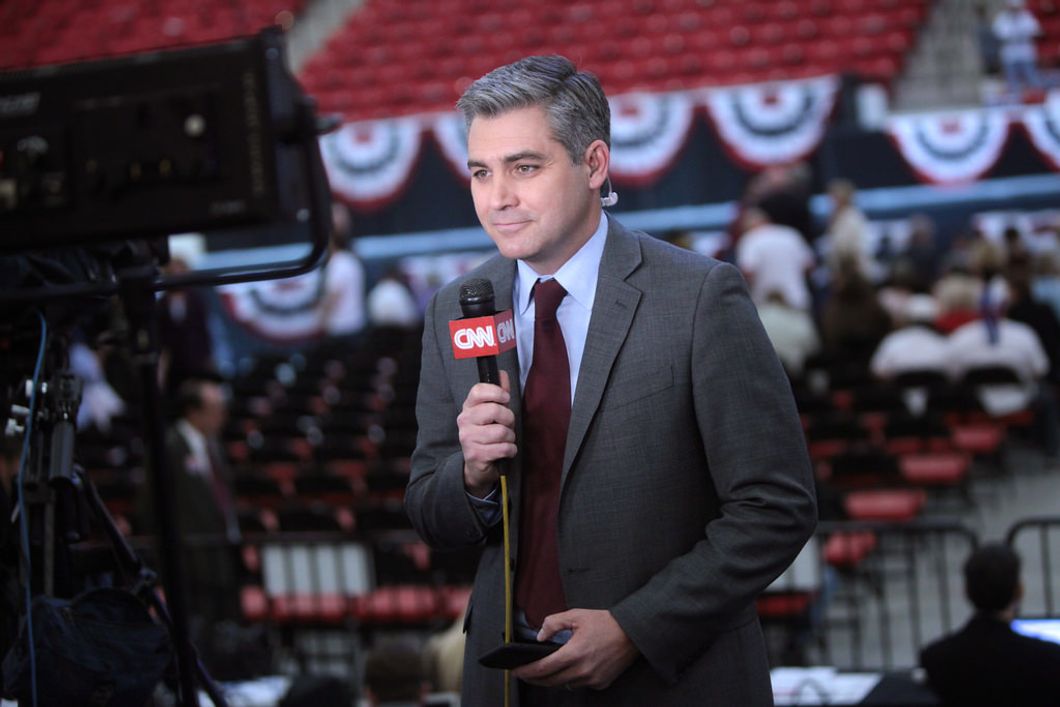The fundamental basis of the United States of America lies in the freedom of expression, speech, and press—all encompassed in the First Amendment to the Constitution. People are entitled to speak their minds, express their opinions, and report the news on any form of media available to them. Everyone has the right to their voice and the right to share their truth with anyone they can.
Now, given this, consider the following:
President Trump is stripping reporters of their right to report news from the White House and confiscating their media passes on the basis of being "unprofessional" and not showing "respect" to the President. When pressed to answer why he has suspended specific individuals from reporting directly from the White House, namely, CNN's Jim Acosta, Trump provides a variety of reasons, all of which have been disproved or do not hold as valid reasons to suspend a member of the press from reporting news.
Trump insinuated that Acosta had behaved inappropriately toward a White House intern, but video surveillance proved him to be incorrect. He has gone on to accuse other reporters of behaving unprofessionally—he said that CNN White House correspondent Abby Phillips, a graduate of Harvard University, asked "a lot of stupid questions" when she asked about Robert Mueller, and he accused African American Yamiche Alcindor of PBS of asking racist questions when she inquired about whether Trump's rhetoric emboldened white nationalists.
The main theme I'm trying to get at is this: reporters are asking real questions. They're asking tough questions, uncomfortable questions, questions they would ask any politician they're trying to get a story from. However, the differences between President Trump and any other politician are mainly summed up in that President Trump has the power to prevent the media from being near him and most other politicians don't spend their time complaining about the press trying to uncover things about them in order to get a story. Other people try to change the narrative by publicizing actions that paint them in a different light—Donald Trump, on the other hand, tries to change the narratives he doesn't agree with by removing them completely.
Censoring the press is not the move to make in an independent, democratic country. Controlling the narrative is not a democratic move. Not being able to handle criticism is not a democratic move. Oh wait—it's also not a politician's move. Or an adult's move. Or a generally moderately mature person's move. Our president, everyone.
Sorry (not really), but I find it extremely difficult to take someone, especially someone in a public position of authority, seriously when they seem to be incapable of respecting and abiding by the laws they are meant to enforce. Every citizen in the world deserves the right to spread and access truth and new viewpoints—we all deserve to be free.
So, yes, get back to me when you can accept that you, along with every single other person in this world, is full of flaws, President Trump. Learn how to accept and grow from criticism, and maybe you'll find yourself on the receiving end of some of that "respect" you seem to be unable to find from the reporters and media that just spread the truth as they see it right in front of them.






















